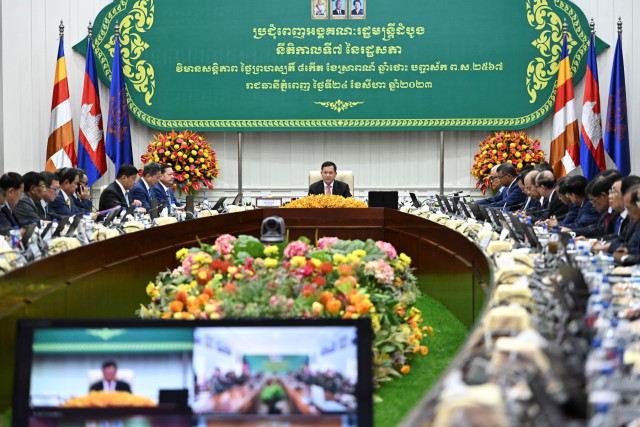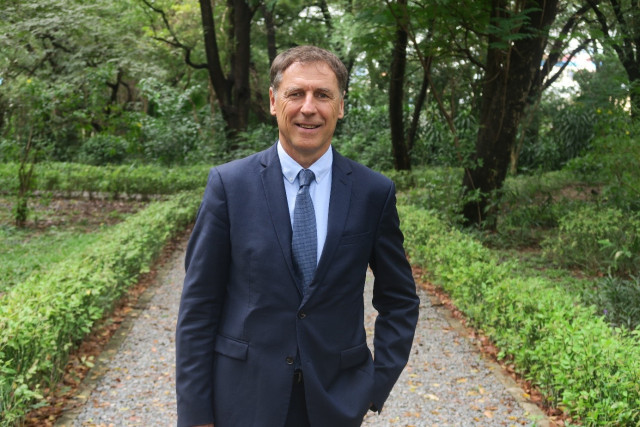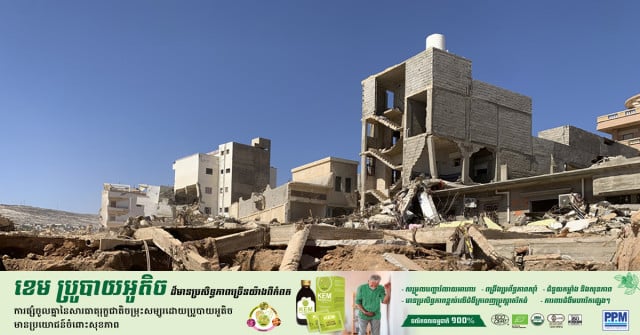New Government Sets Pentagon Strategy in Key Areas

- By Teng Yalirozy
- August 24, 2023 3:12 PM
PHNOM PENH – Prime Minister Hun Manet has set out “Pentagonal Strategy-Phase 1” towards building a robust Cambodia in the next 25 years, centered on growth, employment, equity, efficiency and sustainability.
The strategy was launched at the first plenary session of the Council of Ministers led by the PM on Aug. 24. The strategy was developed based on the ruling party’s “Political Platform for Nation Building and Defense 2023-2028,” to achieve the national vision for 2050.
Hun Manet said that in the past 25 years, Cambodia had focused on rebuilding the country in the post-war period. The next 25 years would be a new cycle to build a strong nation towards a high-income country by 2050.
The strategy has five phases. The first will have five key priorities, roads, people, water, electricity and technology.
The first phase will work to ensure crisis-resilient economic growth, create jobs, reduce poverty, improve governance and public institutions, and ensure sustainable socio-economic development.
“The Pentagonal Strategy-Phase I shall be implemented, in accordance with the approach of Dynamics of Stakeholder System, requiring all ministries-institutions both national and sub-national, to work together in an energetic collaboration and coordination, with synergy and complementarity, as well as flexibility to changes of realities to achieve the set priority objectives,” Hun Manet said.
The core of the strategy focuses on institutional reform and strengthening; improvements in human resources and work efficiency; enhancement of accountability and integrity in public administration; enhancement of laws and the justice system; and strengthening of the governance of the private sector and business.
The structure of the strategy also includes an overarching environment that focuses on political stability and security; a smart foreign policy that is independent and rule-based; macroeconomic and financial stability; inclusive partnership for development; and regional and global integration.
The first part of the Pentagon is human capital development which focuses on education, technical skills, health, social protection, food system and equity based on the spirit of “leaving no Cambodian citizen behind”.
The second part is economic diversification and competitiveness enhancement while the third is the development of the private sector and employment, aiming to develop the labor market and promote competition and startups.
The fourth is resilient and sustainable development. The last one focuses on the development of the digital economy and society.
The PM said the new government will work on six priorities. The first three are expanding healthcare, providing vocational and technical training for youths, and institutionalizing social assistance programs for poor and vulnerable households.
The other three are working on the inclusion of the informal sector into the formal economy, developing market access for local agricultural products, and modernizing agriculture techniques across the nation.
The government also identifies challenges in official capacities, education quality, healthcare quality, community safety and justice quality, in which Hun Manet said key measures would be required.
The PM will directly lead the national committee for measures to improve the quality of education and healthcare.
He assigned the Interior Ministry to work on community safety and implement the “Safe Village-Commune-Sangkat Policy,” while he entrusted the Justice Ministry with the task of improving justice quality.
“I would like to once again call on all leaders and officials across all ministries and institutions, armed forces of all kinds and authorities at all levels, the legislature and judiciary bodies, as well as all bilateral and multilateral development partners, the private sector, non-governmental organizations, as well as all compatriots, provide full support for the strategy,” he said.















